North Tracks Expeditions
Boreal Pursuit: Lynx, Hares, and Northern Lights
10 days Trip
Available dates 2026
15/02/2026 to 24/02/2026
26/02/2026 to 07/03/2026
09/03/2026 to 19/03/2026
Group size: 6 people max
YUKON
Price per pers. CAD $6 000.00
Find us on
Immerse Yourself in a Wild and Enchanting Winter in the Yukon
This unique photo tour takes you deep into a remote wilderness, where fresh snow reveals every track, and the silence is broken only by the call of an owl or the soft rustle of an Arctic hare.
Comfortably settled in cozy cabins nestled in the heart of nature, you’ll experience total immersion in a world where lynx slip between frost-covered trees, Dall sheep navigate cliff edges, and the haunting call of a wolf may still echo through the night.
Each day is devoted to the observation and tracking of elusive and captivating wildlife, guided by a passionate wildlife photographer.
And when daylight fades, another spectacle begins: the northern lights dance across the sky, casting their glow over the boreal forest and sleeping mountains.
A journey beyond time, a photographic quest and a deep connection to the wild beauty of the North.
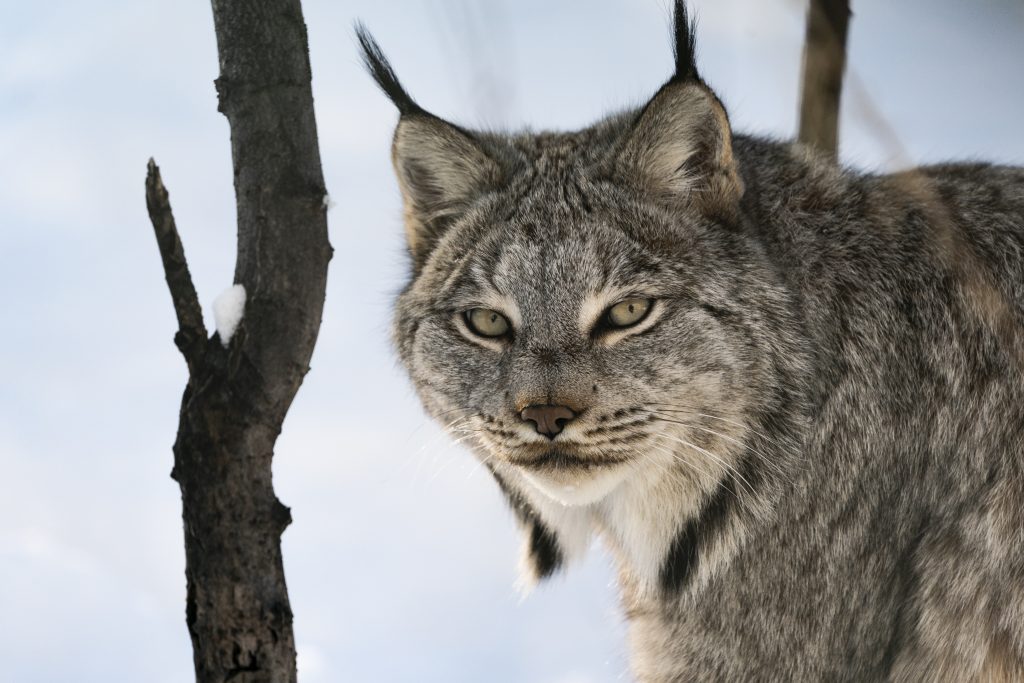
Trip highlights
Immersion in raw, untouched nature, deep in the northern wilderness.
Small group experience (max 6 people) for a more intimate and authentic adventure.
Local naturalist and wildlife photographer guide, who will teach you how to track and observe northern wildlife.
Tracking and observing unique Arctic wildlife in truly exceptional conditions.
Witness the magic of the northern lights, in a silent, wild, and awe-inspiring landscape.
Experience life in the Far North, staying in cozy cabins with the crackling warmth of a wood fire under the stars.
Itinerary
Day 0 – Arrival in Whitehorse
Participants arrive in Whitehorse and settle in for the night at the hotel. An evening to rest, acclimate to the cold, and enjoy the first glimmers of the North.
Day 1 – Heading to the Camp
Morning pickup at the hotel, welcome briefing, then departure by vehicle toward our remote lodge in the heart of lynx territory. After a few stops for supplies along the way, we reach our base camp for the next 9 nights. First explorations around the cabins and settling in.
Days 2 to 9 – Tracking the Ghost of the Forest
Each day at dawn and dusk, we head out on foot or by vehicle in search of the elusive Canada lynx.
The snowy landscapes reveal fresh tracks — snowshoe hares, foxes, coyotes, wolves, and sometimes… the paw prints of a lynx.
We follow these clues with patience and silence, in a world frozen by cold, listening for the slightest sign.
Outings are adapted to weather conditions and animal movements, with varied routes through forest, clearings, and mountain terrain.
The day may also include wildlife observations directly from the lodge, which is located on a natural wildlife corridor.
Each night, if the sky is clear, we may be lucky enough to witness the mesmerizing dance of the northern lights above the snowy treetops.
Day 10 – Return to Whitehorse
After a final breakfast in the quiet of the boreal forest and one last outing, we begin the journey back to Whitehorse in the afternoon.
Check-in at the hotel for a final night before departure.
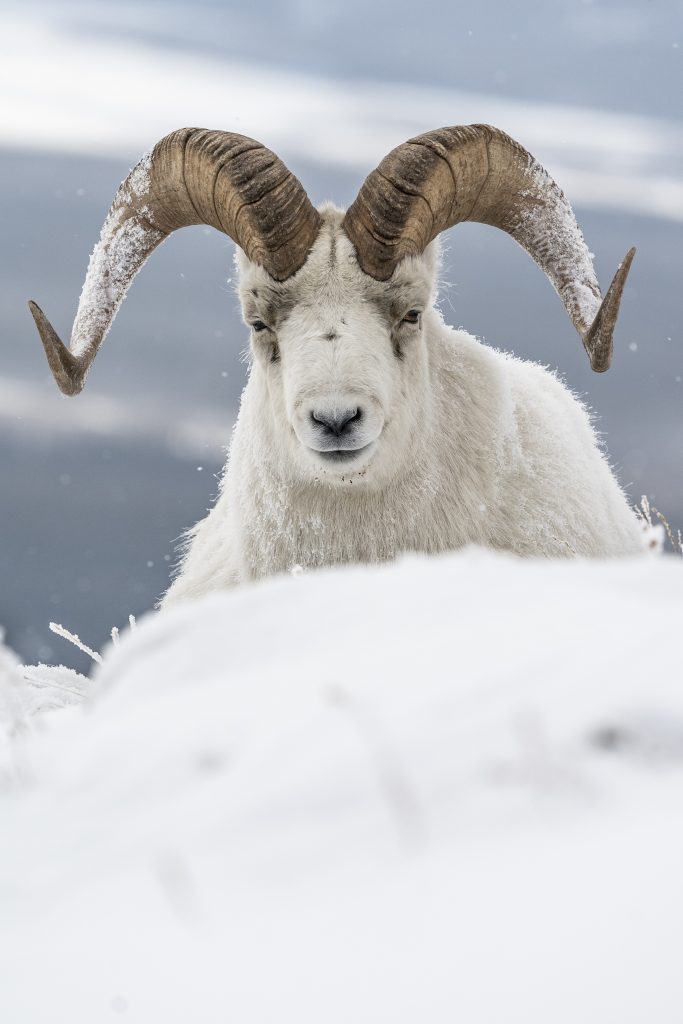
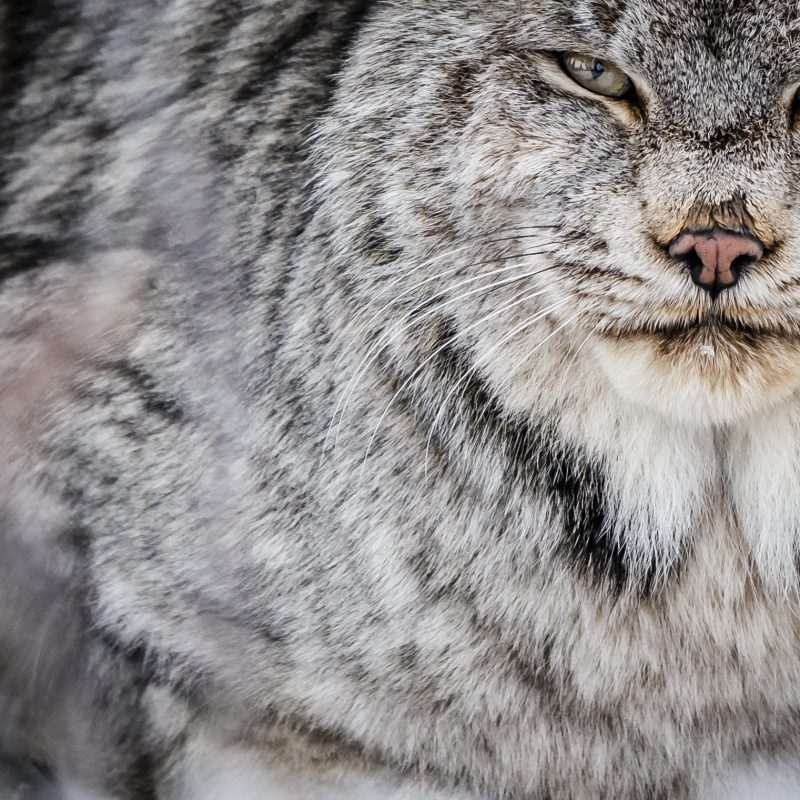
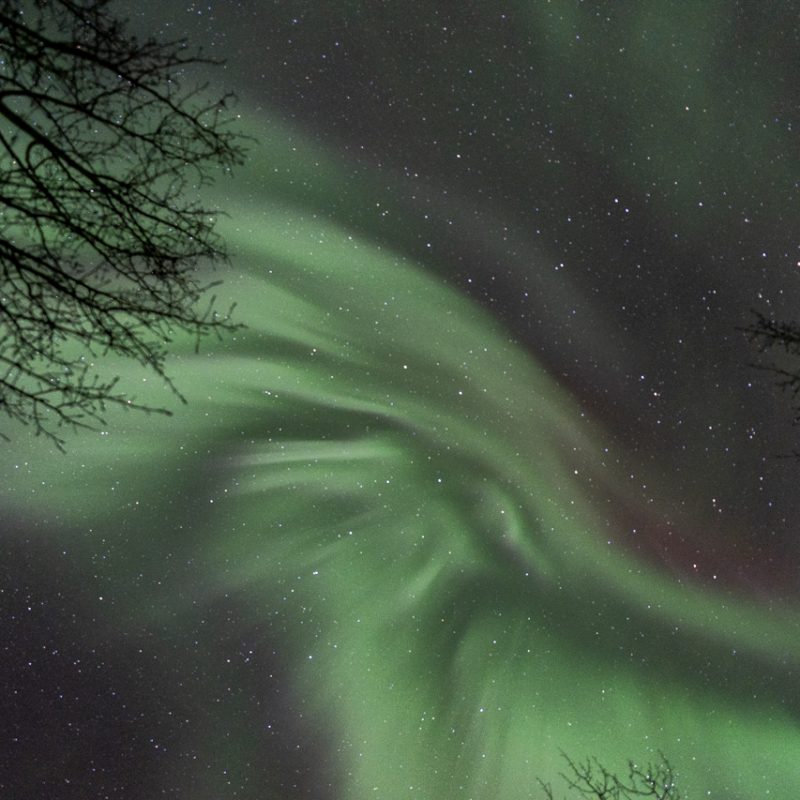
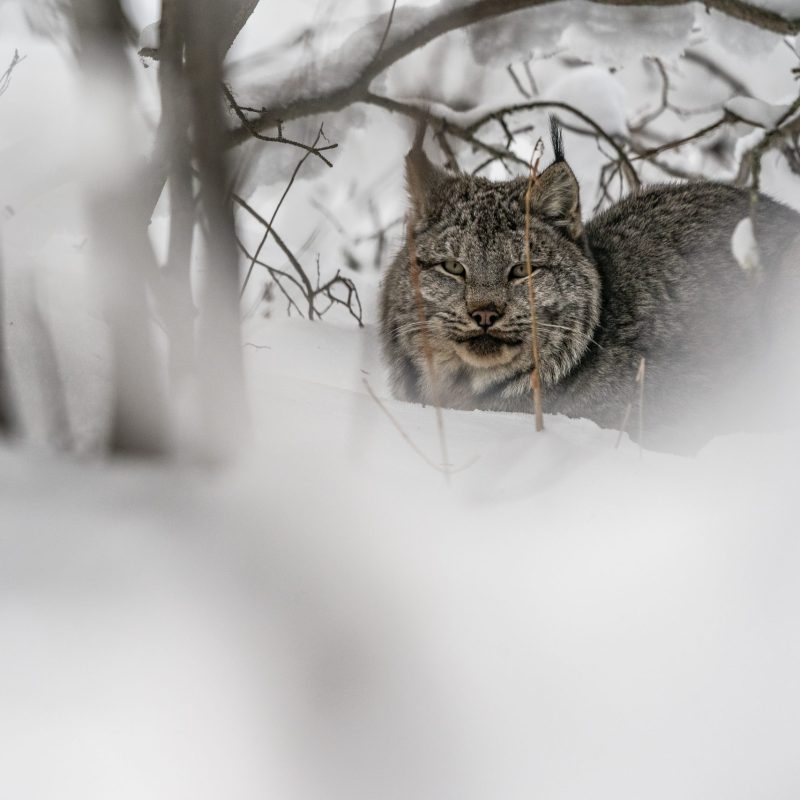
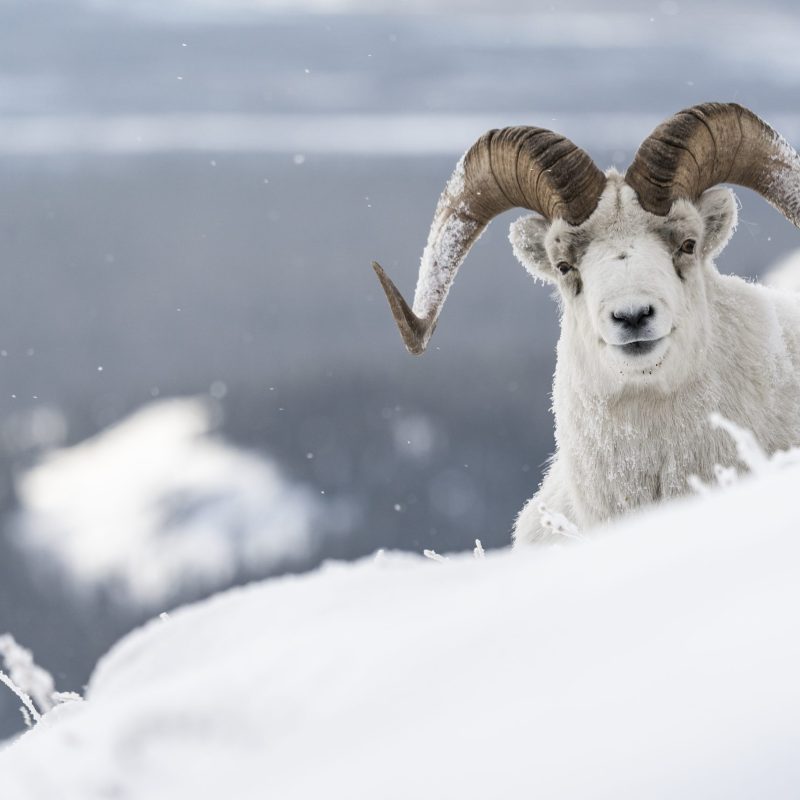
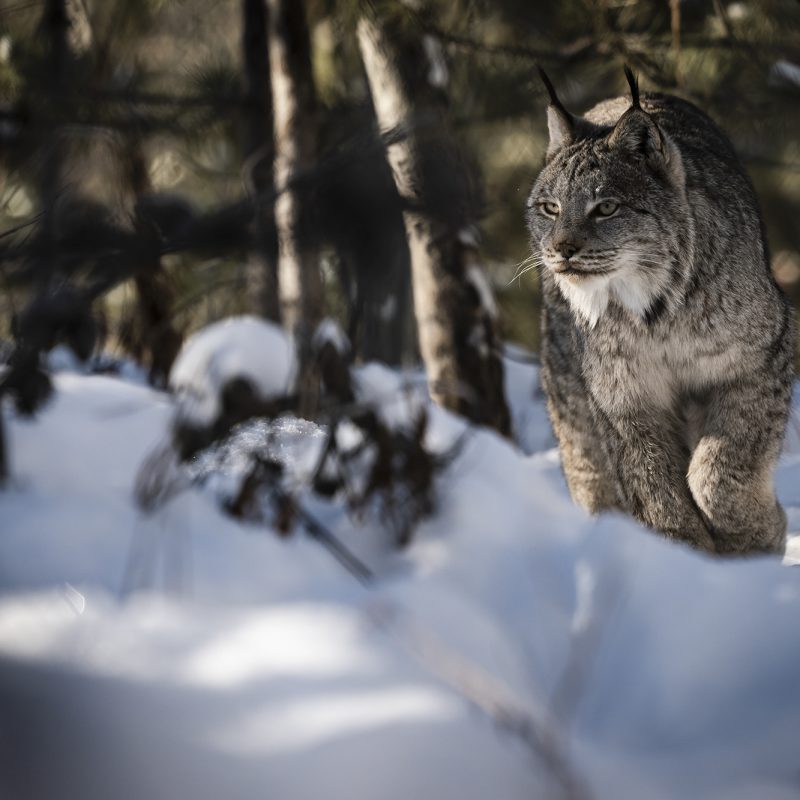
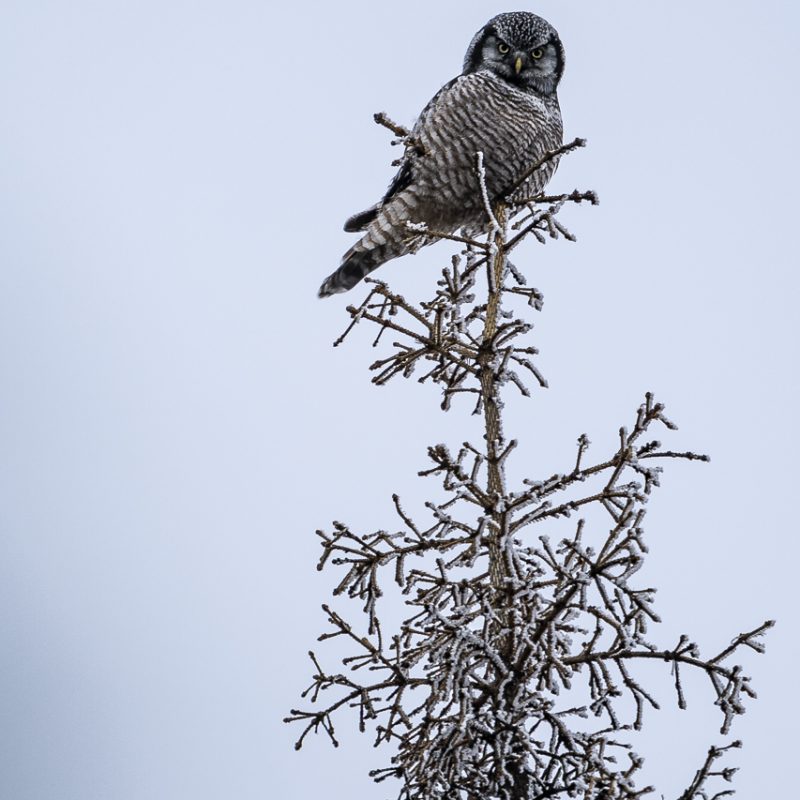
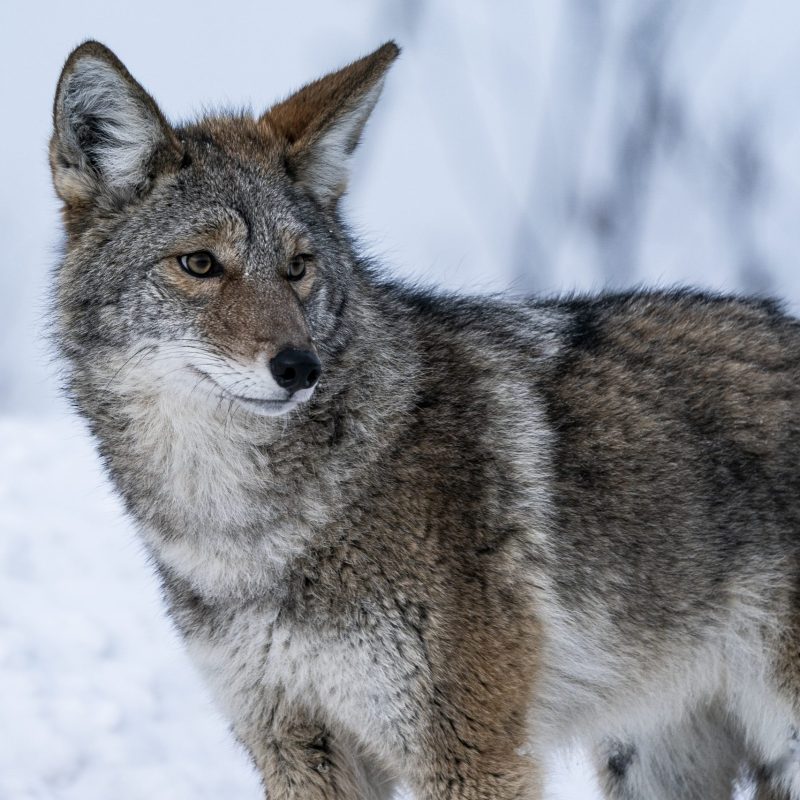
Included
-
2 nights hotel accommodation in Whitehorse in shared room
-
9 nights at Kluane Lake Lodge in shared room
-
Supervision by a local bilingual (Fr/En) naturalist and photographer guide
-
All meals except those on the first and last evening (D0 and D10)
-
Local transport and transfers
-
All group safety equipment
-
Not Included
-
Flights to/from Whitehorse
-
Single room supplement (on request / Extra)
-
2 evening meals in Whitehorse (D0 and D10)
-
Hotel - Airport transfer
-
Beverages, spirits
-
Personal expenses
-
Travel insurance (recommended)
-
eTA (Canada entry)
-
ESTA (USA entry)
-
Tips (To be determined by each individual)
-
Your own gear
-
More generally, any item not covered by the previous section.
-
Practical Information
This trip takes place in February, during the heart of the Yukon winter, with temperatures that can drop as low as –40°C (–40°F). It is therefore essential to be fully equipped for extreme cold weather (multi-layer technical clothing, insulated boots, proper gloves, etc.).
Daily outings take place mainly on foot through the snow, in search of lynx and other northern species. Some excursions may also be done by vehicle to reach more remote areas.
A good level of physical fitness is recommended, as walking in deep snow and cold temperatures can be physically demanding.
Finally, on clear nights, you’ll have great opportunities to observe the northern lights from our accommodation or during short nighttime outings.
🐾 Climate
In winter, temperatures can drop below –40°C (–40°F), so make sure to bring proper cold-weather gear.
We recommend the layering method:
-
A thermal base layer
-
A warm long-sleeve shirt
-
A pullover
-
A very warm winter coat with a hood
-
Snow boots
-
Thermal leggings and ski pants
-
A beanie
-
Thin gloves (liners) and warm outer gloves
-
A balaclava (to protect your face from frostbite in case of wind)
-
A neck warmer or scarf
🐾 Passport & Travel Authorization
Please make sure your passport is valid for at least six months beyond the end of your stay.
Don’t forget to apply for your ETA (Electronic Travel Authorization) before traveling to Canada.
Photography Gear
🐾 Camera body
Bring at least one camera body that you are comfortable using. Your guide will be available to help with settings or new techniques if needed. A second camera body can be helpful for quick shooting in different situations and avoids exposing your camera sensor to dust during lens changes.
🐾 Lenses
Focal lengths from 16mm to 600mm will all come in handy. Wide-angle lenses are ideal for landscapes and northern lights photography. A fast aperture (like f/2.8) is a plus for night photography.
For wildlife, there will be some opportunities to get relatively close, so a 70–200mm to 600mm range will cover most needs. A 300mm minimum is recommended.
Keep in mind the crop factor if you’re using an APS-C or micro 4/3 sensor—it can extend your focal range.
🐾 Memory cards
It’s best to bring multiple memory cards to avoid running out of space. Since we return to the lodge each evening, you can back up your photos to a laptop and external hard drive if you bring them.
🐾 Batteries
Bring several extra batteries—cold weather drains them quickly. As we’ll have access to electricity every evening, remember to recharge them regularly. Don’t forget your charger and a North American plug adapter (two flat prongs).
*Tips: You can keep your batteries in your coat with a heating pad during our outings to help them last longer.
🐾 Optional accessories
-
A pair of binoculars
-
Flash is not recommended to avoid disturbing wildlife
-
Tripod or monopod
-
Cleaning kit (microfiber cloth, brush, air blower)
-
Bean bag (for ground-level stability)—you can purchase rice locally if needed
🐾 Luggage
We recommend bringing a backpack and a suitcase.
If you’re on medication, keep it with you in your carry-on, along with your prescriptions, in case your checked luggage is delayed or lost. The same goes for your camera gear and batteries—never check them in.
Tripods and monopods, however, should be placed in checked baggage.
⚠️ Important: Be sure to check your airline’s baggage weight limit to avoid additional fees at the airport.
